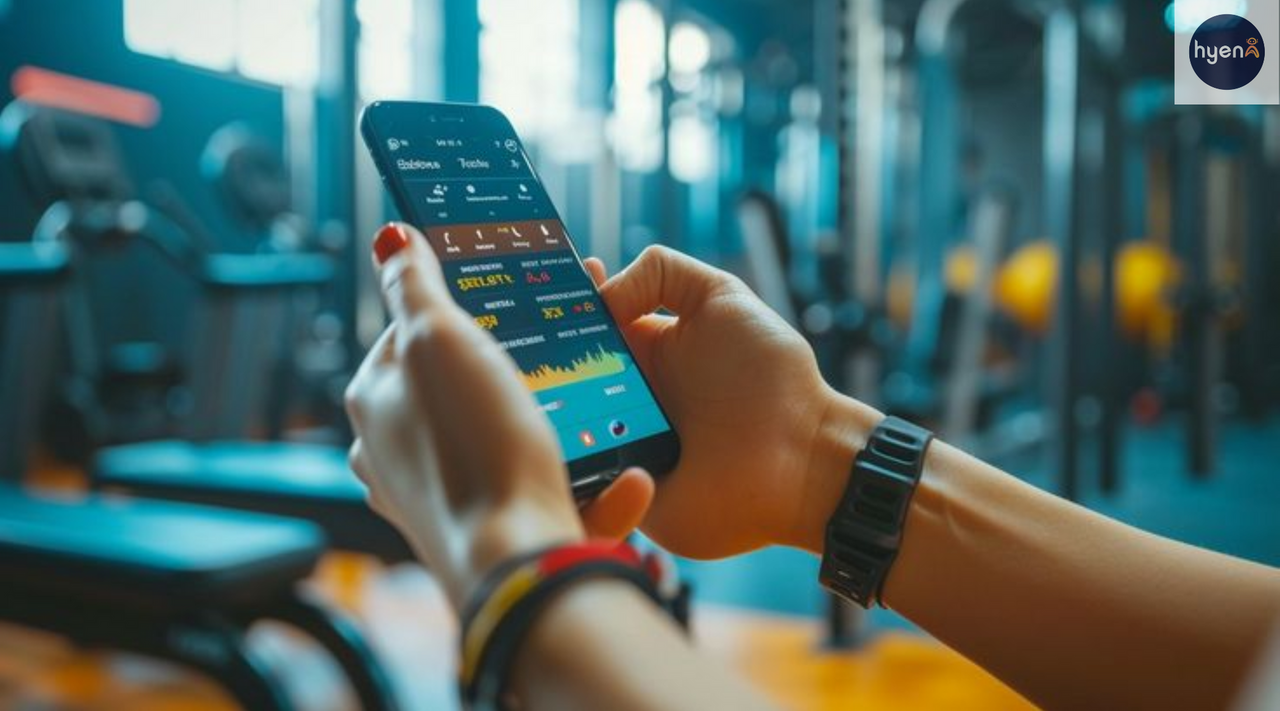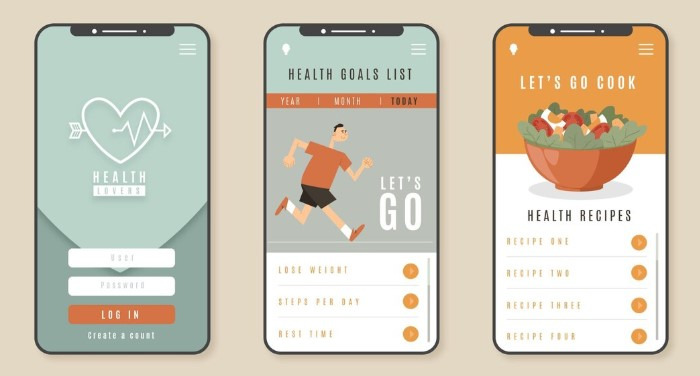In a region where mobile phone usage is among the highest in the world, it’s surprising that the Middle East still lacks a standout homegrown fitness app. Despite countries like Saudi Arabia and the UAE rapidly adopting smart technologies, the fitness app market remains wide open. As global players dominate the digital wellness space, there’s a significant opportunity for a culturally tuned, locally built solution to rise and thrive in this market.
📊 A Market That’s Hungry for Innovation
According to recent market research from global analytics firms, the fitness and wellness app industry in the Middle East is projected to grow at an annual rate of over 17% between 2025 and 2030. In Saudi Arabia alone, the fitness app market could exceed $160 million by 2033, as per their data.
Why this growth? It’s being driven by rising health awareness, a youthful population, and increased investment in digital health infrastructure.
But despite this progress, the region still lacks a regionally dominant fitness app brand. And that’s where the opportunity lies.
🚧 What’s Holding the Market Back?
While the region is on the brink of digital health expansion, several challenges still limit full-scale adoption:
1. Limited Digital Literacy and Internet Gaps
Even though smartphone ownership exceeds 85% in countries like the UAE, rural parts of the Middle East still face inconsistent internet access and lower digital literacy rates—especially among older adults.
2. Deep Concerns About Data Privacy
As per regional news outlets, many users hesitate to use health-related apps due to uncertainty about how their personal information is stored, shared, and used. With no uniform privacy law like the GDPR, this skepticism is understandable.
3. Cultural and Gender Barriers
Apps that don’t account for local cultural norms tend to fail. For example, in conservative regions, women may not be able to access gyms freely, making women-focused workout apps essential.
4. Harsh Climate
With temperatures regularly exceeding 45°C (113°F) during summer, outdoor fitness becomes less appealing. Apps promoting running or hiking must offer indoor alternatives and climate-sensitive features.
🚀 What Makes This a Golden Opportunity?
Health Awareness is at an All-Time High
According to health department data in Saudi Arabia and the UAE, chronic illnesses such as obesity and diabetes have increased by more than 30% over the past decade. Governments are now investing heavily in wellness programs and public fitness initiatives.
Consumers want solutions. What they don’t have is a personalized digital platform that reflects their culture and lifestyle.
🔧 Developing Apps for Healthcare
Building a health or fitness app for the Middle East means thinking beyond traditional Western models. Localization is key—language support, culturally appropriate content, and offline access are not “nice-to-haves”; they’re essentials.
A mobile app that includes local food suggestions, Arabic-language training videos, prayer-time fitness breaks, and gender-separated workout communities would have a strong edge in user adoption.
🧠 Digital Health App Development
Smartphones today are more powerful than ever, and AI in healthcare apps is becoming the norm. Digital health app development should include:
- Personalized workout plans based on fitness levels
- AI-based coaching and feedback
- Real-time integration with wearables
- Health alerts based on behavior patterns
Your app needs to be more than a tracker—it should be a digital companion for physical and mental well-being.

🤖 RPA Services for Healthcare Industry
Robotic Process Automation (RPA) is transforming backend operations in clinics and hospitals. But in mobile apps, it can also automate:
- User onboarding
- Personalized content delivery
- Appointment scheduling
- Subscription billing
As per automation industry insights, RPA can increase operational efficiency by over 40% when implemented correctly.
💰 Fitness App Development App Cost in UAE
Developing a high-quality fitness app in the UAE depends on the scope. A basic app with limited features might cost $20,000 to $35,000, while a full-featured, AI-powered solution can range from $70,000 to $120,000.
Cost is influenced by:
- Platform (iOS, Android, or both)
- Backend development
- Security protocols
- UI/UX customizations
- Localization for the Middle Eastern audience
🏥 Healthcare App Cost in Dubai
Dubai’s healthcare ecosystem is among the most advanced in the region. A healthcare app here typically requires features such as:
- EHR (Electronic Health Records) Integration
- DHA compliance
- Multi-language support
- Video consultation modules
As per tech service estimates, the average development cost falls between $40,000 and $100,000, depending on the complexity and regulatory integration required.
💬 Chatbot Use Cases in Healthcare
Healthcare chatbots are now becoming essential features in mobile apps. They help users:
- Book appointments
- Receive medication reminders
- Get symptom-based advice
- Ask FAQ-level questions
AI-powered chatbots can reduce human support costs by up to 60%, according to health tech news data. They also make healthcare access faster and more convenient—critical in regions with limited physical infrastructure.
📱 Fitbit Clone App
Building a Fitbit clone? Do it better.
To stand out in the Middle East, the app must support:
- Arabic language and calorie databases
- Prayer time integration
- Indoor workout plans for hot weather
- Cultural filters (e.g., women-only fitness groups)
A Fitbit clone app tailored for the region can easily dominate if it’s developed with empathy and cultural intelligence.

🧠 Facial Recognition Software & Emoji Maker
Facial recognition adds both security and smart personalization. In fitness apps, it can be used to:
- Unlock user accounts securely
- Analyze facial cues for fatigue or stress
- Suggest workout routines based on mood detection
Combined with an emoji maker, your app can give users fun and expressive ways to track and share their emotions—perfect for boosting engagement and building community.
🤖 Artificial Intelligence in Mobile Apps
AI powers the personalization engine of any modern fitness app. It helps:
- Adapt workouts based on progress
- Suggest food plans using user history
- Track irregular behavior or habits
According to AI market analysts, over 80% of fitness apps in 2026 will use some form of AI—don’t fall behind.
🔐 AI for Network Security and Monitoring
Security breaches are a growing concern. AI can identify threats in real time, from suspicious login attempts to fake data entries.
In healthcare apps, AI-based security tools reduce risk by up to 70%, as reported by cybersecurity news agencies. Implementing them ensures user trust and regulatory compliance.
📸 Facial Recognition Software App
Adding a facial recognition software app feature to your health or fitness platform offers:
- Biometric sign-in
- Emotion detection for personalized feedback
- Visual health tracking (e.g., skin tone, stress signs)
When paired with an emoji maker, it creates a powerful feedback loop between users and your app, making the platform feel alive, reactive, and fun.
🏆 Why Choose Hyena Information Technologies?
If you're looking to build a mobile app that dominates in the Middle East or globally, Hyena Information Technologies is your best partner.
We specialize in:
- AI-powered mobile and fitness apps
- Healthcare solutions with RPA and chatbot integrations
- Secure facial recognition and biometric login features
- Cross-platform scalability (Android, iOS, Web)
- Affordable MVP to enterprise-grade projects
Whether you're based in Dubai, Riyadh, New York, London, or Bengaluru, we deliver globally with a local touch.
💡 Final Thought: This Gap Is Your Gateway
The Middle East is ready. The demand is rising. The tech is available. What’s missing is a fitness app that understands the region, speaks its language, and respects its culture.
Be the one to build it.




